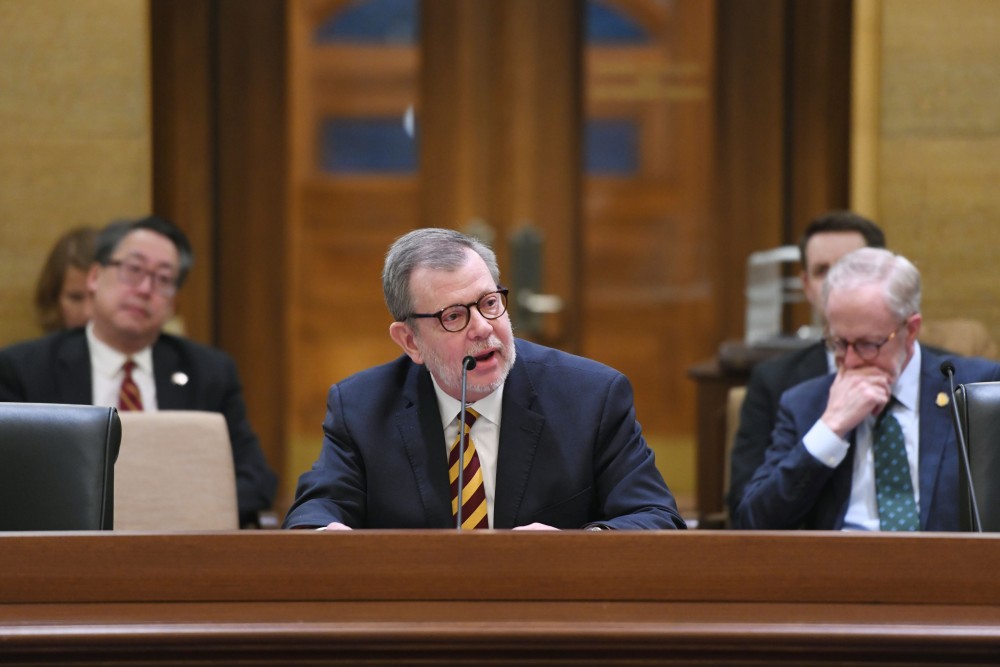University of Minnesota President Eric Kaler’s comments on a potential tuition increase next year have prompted some administrators to criticize the school’s approach at the State Capitol.
Kaler told lawmakers last month that University resident undergraduate students on the Twin Cities campus could see a tuition increase of around 2 percent if the school’s biennial budget request is met. But some administrators and lawmakers say the University could fare better at the legislature with a proposal that includes freezing tuition.
“I’m thinking we may want to update our legislative request to incorporate a freeze so that we can have a more healthy discussion … of what the future is in terms of resident tuition,” said Regent Michael Hsu at a Board of Regents meeting last week.
The Board of Regents agreed upon a $87 million biennial budget request in October, with the stipulation that tuition would increase at or above the rate of inflation.
While Kaler proposed a potential 2 percent tuition increase in front of the legislature, no specific figure was agreed upon by the board, said Regent Darrin Rosha.
“I first learned about that position through a media report. And I did not recall that being a conversation that we had,” Rosha said.
Tuition freezes are ordinarily discussed later in the year, after the legislature allocates money for the University in May, Hsu said.
“[The administration is] kind of trying to get [the 2 percent increase] baked into the public psyche before it even shows up at a board meeting,” Hsu said. “I just wanted to recognize that the legislative request that I believe we’ve been putting out there is not accurate because we never said that.”
University Vice President of Finance Operations Brian Burnett said the University’s past budget asks included a tuition freeze. Last session, the University requested $10 million from the state’s budget surplus to freeze tuition. This request was not granted, resulting in tuition increases for resident undergraduates on the Twin Cities and Morris campuses.
“We said that the request we put forth didn’t anticipate or contemplate a freeze of tuition or something like that because we had done something like that the year before,” he said.
The University informed lawmakers that an additional $34 million would hold Minnesota undergraduate tuition flat on all five campuses for both years of the upcoming biennium, said University spokesperson Emma Bauer in an email.
“We can give them that number and have given them that number and several legislative leaders that number,” Burnett said at the February board meeting. “But when I go back and look at what we did last September and October, I think we made a conscious decision not to ask for a legislative request that included a freeze in in-state tuition.”
Sen. Jason Isaacson, DFL-Shoreview, said while he has discussed a new request with the University, he doesn’t think changing the ask would affect the schools eventual allocation.
“I said that’s not going to help you because now this is what people think you really need,” he said. “You’ve got to represent what you need. And if you don’t ask for what you need, we can’t help you.”
House higher education committee chair Connie Bernardy, DFL-New Brighton, told the Minnesota Daily in January freezing tuition is one of her top priorities this session.
But Senate higher education committee chair Sen. Paul Anderson, R-Plymouth, said he was receptive to Kaler’s proposal to hold tuition flat on satellite campuses.
“My feeling is that the legislature has made it pretty clear that they want us to hold the line on tuition, but they want us to do it on our own, they don’t want it to come off as a threat,” Rosha said.








